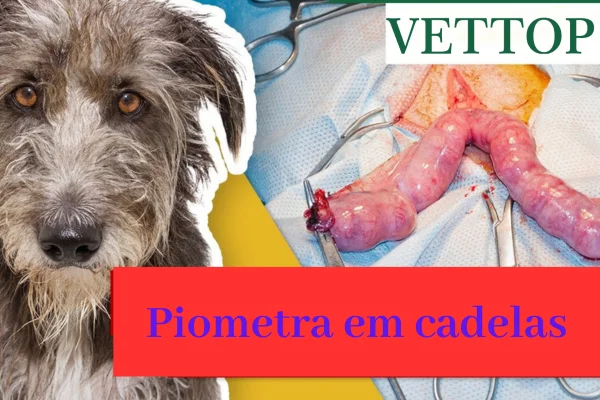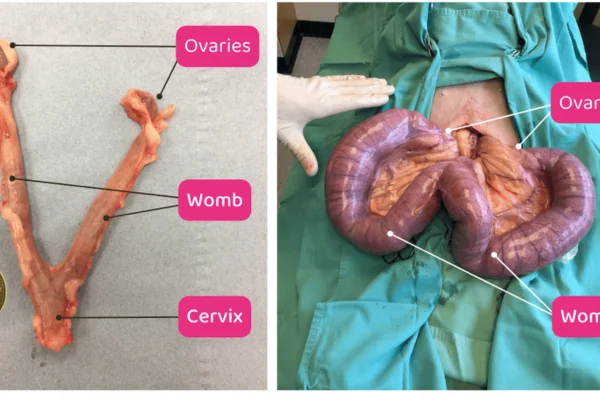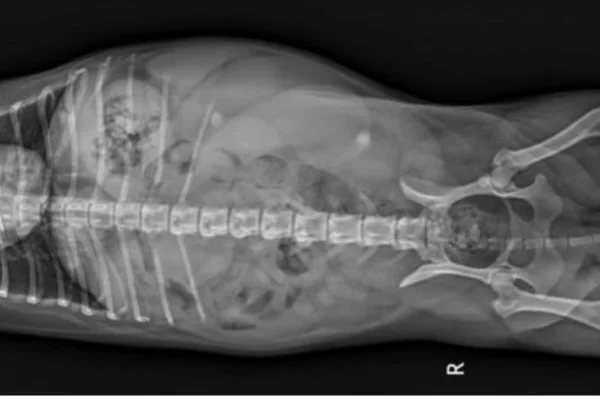Pyometra in Bitches: Understanding the Symptoms and Treatments
Introduction
Pyometra is a serious condition that can affect unneutered female dogs, and it is crucial to understand its symptoms and treatments to ensure the well-being of pets. In this article, we'll explore what pyometra is, how to identify its early signs and what treatment options are available.
What is pyometra?
Pyometra is a uterine disease that occurs mainly in uncastrated female dogs, characterized by the accumulation of pus in the uterus. This condition arises due to hormonal changes in the female reproductive cycle, which can lead to closure of the cervix and bacterial proliferation inside the uterus. Without proper treatment, pyometra can result in serious complications, such as generalized infections and even the death of the animal.
Contents
Symptoms of Pyometra
Clinical symptoms can vary depending on the type of disease, which can be classified into open pyometra and closed pyometra.
Open pyometra:
- Purulent vaginal discharge and a strong odor are characteristic symptoms of open pyometra. This discharge is a mixture of pus, dead cells and blood that accumulates in the uterus and can be seen coming out of the bitch's vulva. The presence of this discharge is a clear sign of uterine infection and should be treated immediately.
- Increased thirst and frequent urination are common due to the presence of toxins circulating in the blood as a result of the infection in the uterus. The bitch may show dehydration and signs of abdominal discomfort.
Closed pyometra:
- A distended abdomen due to the accumulation of fluid inside the uterus is a hallmark of closed pyometra, which can lead to uterine rupture if not treated properly. The accumulation of pus and fluids can cause significant internal pressure, compromising the animal's general health.
- Frequent vomiting can occur due to the impairment of the digestive system by the toxemia resulting from the infection in the uterus. These symptoms are a serious warning sign and require immediate veterinary intervention.
- Shock in advanced cases is a medical emergency, as the infection can lead to a severe systemic inflammatory response, affecting vital organs and the animal's cardiovascular stability.
Diagnosis
The diagnosis is based on the clinical signs presented by the animal, such as purulent vaginal discharge, a distended abdomen and a compromised general state of health. The vet can confirm the diagnosis through complementary tests, such as blood tests to assess the presence of infection and organ changes, abdominal ultrasound to visualize the uterus and x-rays to assess possible complications, such as uterine rupture.
Treatment of Pyometra in Bitches
Treatment usually involves the surgical removal of the affected uterus, known as ovarian-salpingohysterectomy (OSH). This procedure is crucial to avoid serious complications and recurrences of the disease. During OSH, the vet completely removes the uterus and ovaries, interrupting the hormonal cycle that causes the disease. Post-operative recovery is essential to ensure that the bitch fully recovers and returns to normal health.
In cases of closed pyometra or when the animal is in critical condition, treatment may include supportive therapy with intravenous fluid therapy to stabilize the animal and administration of broad-spectrum antibiotics to fight the infection. Early intervention is essential to improve the chances of recovery and minimize the impact of the disease on the dog's health.
Prevention
Prevention of pyometra is extremely effective through early castration of female dogs. Removing the ovaries and uterus completely eliminates the risk of developing this disease, as well as preventing other uterine and mammary conditions common in unneutered dogs. Castration also contributes significantly to responsible pet population control, reducing the number of unwanted litters and promoting a healthier life for female dogs.
Final Thoughts: Pyometra in Bitches
Understanding pyometra, its symptoms and treatments is essential to ensuring a long and healthy life for our four-legged friends. By taking care of our pets' reproductive health, we are not only protecting them from serious illnesses, but also promoting their overall well-being. It is essential to be attentive to the clinical signs presented by the animal and to seek immediate veterinary assistance at the slightest sign of symptoms related to pyometra.
Regularly consulting a trusted veterinarian for check-ups and guidance on preventive care is a crucial measure for maintaining the health and happiness of our canine companions. By educating owners about the importance of neutering and preventive care, we can contribute to a healthier and happier pet community.
I hope this article has been informative and enlightening. For more information on pet health and care, always consult a qualified professional.
Thanks for stopping by, check out our other work too
https://vettopbr.com/tosse-em-caes/










